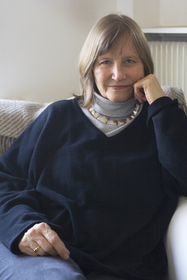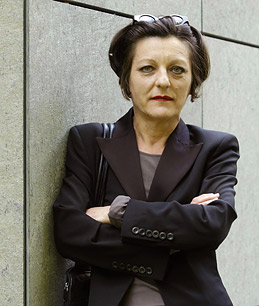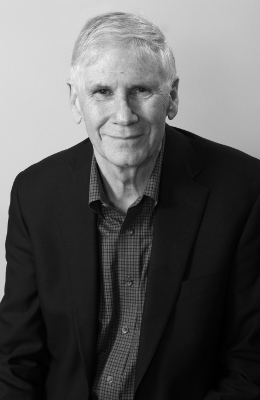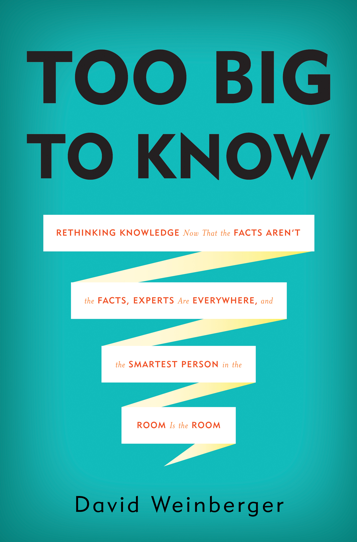Meredith Sue Willis's
Books for Readers # 157
November 4, 2012
Alice K. Boatwright Herta Muller Reamy JansenIt looks better online! -- Read latest changes and corrections online
MSW Home
In this Issue:
Recommendations for Gift-Giving Season
Dolly Withrow Reviews A Land More Kind Than Home
Wanchee Wang Reviews Loud in the House of Myself
The E-Reader Report with John Birch
Announcements
Free e-mail subscription to this newsletter.
To create a link to this newsletter, use this permanent link .
For Back Issues, click here.
I want to begin this issue with a book of Vietnam War novellas, COLLATERAL DAMAGE by Alice K. Boatwright. The stories are linked by men and women damaged in the war itself or in service during the war or in the long and continuing aftermath of the war. There is a late 60's story, an 80's story, and a 90's one. The first one, "1968: Getting Out," is narrated by Toby Woodruff, who represents his generation's existential confusion. Torn between refusing to participate in the war and working against it, like his friends, or actually going to war, he fumbles for a middle ground. He joins the Navy believing he can get a noncombatant job. Then, when he realizes he is shipping out to the war zone, he takes a bottle of Seconal and barely survives. The bulk of the story takes place in the navy's psychiatric unit as he tries to find his way out.
Here the story is structured as an interesting reshuffling of One Flew Over the Cuckoo's Nest. There is a wildly charismatic and bitter burn victim and an obsessive-compulsive but sensitive giant. The unpleasant ward is not, however, a snake pit where the objective is to raise hell against thesystem. There is plenty of violence and suffering, but it isn't the staff versus the patients. There is no individualized force of evil comparable to Big Nurse. Everyone is confused, and everyone is in pain. Toby, in fact, gets out. He figures out what he wants and works towards it, intermittently, in concert with his psychiatrist. The story's violence feels earned, and Toby's descent is followed by a slow lifting up.
The second story, "If I Should Stay," centers on one Thanksgiving of a dysfunctional family. The Vietnam connection is that the oldest son of the family has been wounded physically and psychologically in the war. He is not a point-of-view character, but everything seems to radiate from his damage. He had been the leader of the younger generation, particularly of a rock band. The main characters are his sister, Jane, and her husband, Raz., who was in the band. Raz has recently gone sober after years of alcoholism. Another brother, also a band member, has been abandoned by his wife. The professor father spends his time in his study and compares everything to the Brontës. The mother makes everyone crazy trying to have a perfect holiday. Jane, too, seeks family harmony, and is shocked to discover that sobriety doesn't necessarily encourage it. Boatwright works by drawing all the lines from the central damage: direct ones, indirect ones, the ones that are murky mixes of what would probably have been dysfunctional without the war, but are worse because of it.
She does many things well in this story, including some some beautifully executed transitions between scenes. She seems to know how to use spaces and rests as well as high notes and action. One jump cut follows what appears to be an impasse between wife and husband as they fall asleep in separate twin beds in Jane's old bedroom. The next section starts the next morning, and it turns out that Raz has gone into her bed and made love. In the final sections, Jane and Raz part for the holiday, and possibly forever, but maybe not. They are each in places with potentially life threatening situations; Jane fantasizes about a possible pregnancy; neither one of them knows what is going to happen-- hence the title, "If I Should Stay." Unresolved stories often strike me as as muzzy and vague: this one is precise and rings like a bell.
The final story, "Leaving Vietnam," is about the sister of a dead 19 year old soldier. She is arriving in Vietnam on a photography assignment 20 years after the war. She falls in love with the country and the people she meets. She eats, she reconciles with a lover/work partner, she thinks about her life and how she has held back from loving, even her own daughter, (who happens to have been fathered by Toby from the first novella). This story is the most obvious in its exploration of collateral damage as it includes the bombed buildings and rubble of Vietnam itself, as well as the damage to the woman's ability to love.
All three stories recognize pain and estrangement and even violence as part of the quotidian. Explosions and shooting are not cathartic, and the book doesn't hang the whole Vietnam Was on one individual's experience. Rather, Boatwright creates a many-voiced work in which more people live than die, and damage is as everyday as aging. It is about repercussions of events forty, thirty, and twenty years ago, but you feel the march of time into today, and the continuation of struggle and hope..
Hunger, an early novel by Nobel Prize winning Norwegian Knut Hamsun, has some of the qualities of the Man From Underground and other of Dostoyevsky's tales of self-conscious suffering down-and-outs. It apparently has a lot that is autobiographical, too, as its young narratoressentially goes crazy from hunger. He is too proud and eccentric to make the best of his chances, and sometimes you can't tell if he's behaving the way he does--strange antic teasing of strangers (one of these strangers actually turns into an almost-love affair), missing appointments, impetuously giving away money that he desperately needs for food-- out of eccentricity or the effects of hunger.
The details of serious, long-term hunger are delineated with shocking precision: hair falls out, you throws up when you get a real meal. Some of the embracing of ugliness reminds me of Charles Bukowski-- the vomit, the rooms with no heat. But, in fact, Hamsun's character does slowly improve his status. He seems to have people who know him and occasionally do him good turns. He ends the novel by signing on a steamer as a seaman.
Saved? Well, maybe. In real life Hamsun tramped around, worked all kinds of jobs, as a man could do at the end of the nineteenth century if he had a strong back. Unfortunately, Hamsun also, later in life, after the Nobel, became a great fan of the fascists. He was a racist, admired the Nazis, reached out to Hitler, and actually wrote a eulogy for him.
I'm sorry I read the biographical details, because I was drawn in by the book.
Another translated book, recommended here in this newsletter as a political novel of great literary value, was THE LAND OF GREEN PLUMS by Herta Müller, also a Nobel Prize winner. Thisnovel is stunning, tight, vivid and awful. Seven young people, more or less friends struggle for spiritual survival under the Romanian dictatorship of Nicolae Ceaușescu. One of the women is an informer, but also a loving friend. Some of them kill themselves, but there are also deaths by murder and cancer. There are crude interrogations and dangerous efforts to escape. The narrator's father is a former SS man who warns her that green plums will poison her, but the ever-present official guards of the régime stuff their faces with the plums all the time. It's a novel that kept me off balance with its combination of flat assertions and indirection. It is a beautifully detailed world of personal pain and social psychosis told in extreme close-up.
I also read Henry James's WHAT MAISIE KNEW. It is a strange and wonderful book. Sometimes James is too precious for me, but in the end he alwaysmanages to do something amazing. Here it was the stripped down story telling, the tight focus on six people (so tight that there are speaking parts for only maybe three or four others). The plot is the dispostion of the little girl Maisie whose parents have divorced—and what amounts to her moral corruption. Don't misunderstand, this is not about sexual exploitation or Bad Seeds: it's about a little girl who wants to be loved and becomes far too knowing and sophisticated far too early in life. It has some concrete things: food and scenery and a handful of objects, but mostly it is made of endless dialogue and narratiion of Maisie's developing perceptions.. He never attempts to capture her little girl voice, and he never even touches on her sense of her own body– but somehow, remarkably, he tells a gripping story and captures what the child goes through and how she grows. Only Henry James. It isn't a very long book, and I read it on the Kindle for free or next to free, and it's probably worth trying if you have been thinking about testing the Jamesian waters.
And, finally, also read with pleasure, Stephen King's CARRIE. Is there a special name for novels made up of some straight omniscient narration along with fake book excerpts,news feeds, scientific studies, court transcripts, etc.? It has the energy and at least potential depth you expect from King (I'm the big expert on King now, having read two of his books), but also his lack patience for polishing. His description tends to be ample but not refined; he piles up a lot of detail without narrowing it down to the best. He says that though this was his first published novel, it was not the first written. It has rough places, and some of the fake scientific writings are embarrassingly bad, but the story telling, the circling in on events, is excellent. You know what's coming– that is, you know this one will die and this one will live, but not how those things will happen. The lack of dependence on straight shock is a real strength of what I've read so far in his books. With novels, especially today, you have to offer something besides shock, which movies can provide so much better: the smashing glass, the gush of blood, the scream scream scream). King did well with his high school girl characters, too. Carrie really is sympathetic, and you never doubt that you would have had the same break down in her circumstances. The forces of evil here are completely human: the only thing you have to accept is telekinesis-- not so much, really. Well worth the suspension of disbelief.
A COUPLE OF BOOKS I REALLY DIDN'T LIKE MUCH
I expected to like WICKED, the WIZARD OF OZ as retold by the Wicked Witch of the West, by Gregory Maguire. It's a pastiche and a parody that keeps its sly winks going and doesn't seem to love its characters very much. Elphie, our ostensible heroine, just seems to go crazy at the end with no motivation other than Maguire's desire to match up his ending with the original WIZARD OF OZ book. Many ends are left loose, and Elphie's love affair is just stuck in. The dialogue, always a little tricky in other worlds and fantasy, uses current, colloquial expressions and stops just short of pop culture references. Does it appear I didn't like this book? It just seems to me that Maguire is saying I'm clever, and I can do as I please because it's magic, and Oh by the way, would you like to compare royalty statements? There were some good scenes, and a lot of good ideas, but nothing worked out in a way that was intellectually or even dramatically satisfying to me.
Then there is Rachel Higginson's RECKLESS MAGIC, which is also doing very well thank you without any appreciation from me. This was Higginson's first book, self-published as an e-book, and it took off. It's very inexpensive, and it has some fun stuff and some storytelling momentum. It is more authentic, IMHO, than Maguire's book. That is, I think Higginson really believes in her narrator and her story of magical teenagers. The remarkable thing is that it seems largely unedited: there are typos, failures of grammar, and--probably most grating to me--misuse of words. For example, someone sits down on a duvet in a living room. A duvet is a big comforter for a bed, right? Didn't she mean a hassock or a pouffe or a tuffet? A lot of stuff like that. I read part of an interview with her, and she says she has hired an editor for her earlier books. Is this, then the new paradigm? You self-publish as an e-book, and then, if the book takes off, you hire an editor to clean it up for you.
RECOMMENDATIONS FOR GIFT GIVING SEASON: PRESSES AND BOOKS YOU MAY HAVE MISSED
With gift-giving season approaching, I want to note some presses and books with unusual, interesting offerings. You'll surprise your giftees and support the nascent future of literature.
First, take a look at TWO WAYS OF NOT HEARING – POEMS BY REAMY JANSEN. This lovely chapbook from Finishing Line Press has just 9 poems, but gives a sense of much more ground covered– partly because some of the poems are several pages long. One excellent one called "Voices, How I Became a Sensitive Soul," is a sort of family epic in brief statements. Dan Masterson calls it "one of the most revealing poems we have in captivity."
Another one I liked particularly was "Gum," which is about how "In 7th grade cool boys/ in Chinos and/Girls with breasts brand new/ Poodle skirts and/ White ankle socks/They knew what to do/ with gum." Perfect lineation and clear, beautiful phrases that bring powerful memories out of the darkness to the light—not the way so much poetry seems to me to be about making the quotidian into portentous puzzles. "Living With Spirits," a poem about a boy's relationship to his parents' drinking, is one of my other favorites. It's a wonderful small book of poems, a little like a good friend of enormous intelligence and intense good will speaking urgently into your ear about what is really important.
Next, consider Dissident Books which says of its titles: "In an intellectual landscape that's largely homogenous and spineless, Dissident Books offers independent visions and accounts to those who have grown tired of adult lullabies. Our books are for readers who have both the stomach and the desire for the undiluted, no matter how strange, ugly, or sad it might be." See the website at http://www.dissidentbooks.com/ with a new edition of H.L. Menchken's NOTES ON DEMOCRACY and DON'T CALL ME A CROOK! A SCOTSMAN'S TALE OF WORLD TRAVEL, WHISKEY, AND CRIME by Bob Moore.
For something entirely different, try some historical fiction THE GHOSTS OF WALDEN by Jack Hussey, which was reviewed in this newsletter at http://www.meredithsuewillis.com/bfrarchive126-130.html#ghosts on BOOKS FOR READERS.
Two excellent books of essays set in Appalachia are journalist Norman Julian's latest, TRILLIUM ACRES (See http://www.normanjulian.com/ ) and blogger and feature writer Fred First's recent WHAT WE HOLD IN OUR HANDS: A SLOW ROAD READER from Goose Creek Press our of Floyd, Virginia (See http://www.scribd.com/doc/13153504/What-We-Hold-In-Our-Hands-a-Slow-Road-Reader-Press-Release) or http://www.fragmentsfromfloyd.com/stuff/
Also consider AFTERMATH: STORIES OF SECRETS & CONSEQUENCES from Main Street Rag Publishing Company. This will include Ed Davis's short story "Dragon-Slayer" along with a whole host of others. The book is scheduled for release this December and will sell for $14.95, but you can get it until November 20 for only $8.50 + shipping by placing an Advance Discount order from the Main Street Rag Online Bookstore or, if you are more inclined to pay by check, they are $12.50 each, including tax and shipping. Visit http://www.mainstreetrag.com/Aftermath.html for details.
DOLLY WITHROW REVIEWS A LAND MORE KIND THAN HOME BY WILEY CASH
Set in North Carolina, near Asheville, the plot of this novel revolves around an evil preacher who leads snake-handling services. Newspapers are pasted over the windows so no one can see inside the church, which gives us a clue. One blurb compares the book to a Greek tragedy. I agree. A blurb on the back of the book also declares the dialogue to be pitch-perfect. Appalachian characters, lacking formal education, say in one paragraph that someone is "lying down" and a few pages later, a character is "laying down." Characters "sat" objects down (past tense). As an Appalachian for more years than I'll admit, I've never heard any Appalachians say they sat something down. As a grammarian-linguist, I don't think the dialogue is pitch-perfect, but here's something else I think: it doesn't matter a whit. Wiley Cash is a storyteller, an Appalachian, too, and a current English professor at Bethany College in West Virginia, having come to West Virginia from—you guessed it—North Carolina. The evil-preacher theme could easily have been a cliché since Davis Grubb and countless other authors have used the evil preacher figure, but the theme is not at all worn out in Cash's hands. His Preacher Carson Chambliss with his chilling smile is original. Cash is his own insightful thinker, and a good one. He has written a winner, and I recommend his book without hesitation.
Read Dolly's piece on "Remembering the sounds, sights and smells from childhood" at http://dailymail.com/foodandliving/myturn/201209160035
WANCHEE WANG REVIEWS LOUD IN THE HOUSE OF MYSELF BY STACY PERSHALL
I read this book because the author is teaching memoir writing at Gotham Writers Workshop in New York and I was considering taking her class. As it turns out, I'm not taking her class but not because I didn't like her book. Pershall gained notoriety in 2001 when her attempted suicide was broadcast on the Internet.
Growing up in small-town Prairie Grove, Arkansas, she suffered from borderline personality disorder, bulimia, and bipolar disorder, which rendered her a social outcast at school. Her sensitive nature was evident early on as she felt the need to take care of her mother: "I felt sorry for her and didn't want to leave her side. When she was with me, I did whatever I could to make sure she was having fun, and I took this upon myself with a resolute determination." Her bulimia began when she sought to lose weight to hold on to a boy: "Take the oversensitive girl…and give her a boyfriend who tells her she's fat but he might love her if she wasn't, and you're off to a roaring start."
The book chronicles her descent into ever more erratic and extreme behavior, triggered by failed relationships, disappointed expectations, and a perpetual sense of not fitting in. Her tone though, avoids self-pity or whining; instead, it is bracingly frank and honest: "I fell apart with a whole new level of tragedy and drama…I found the black hole inside me and lived there, and as a prelude to a decade-long battle with the mental health care system, it was strangely peaceful…That winter I simply waited to disappear." The years of mental illness and pain finally culminate in her suicide attempt. She eventually finds healing through dialectical behavioral therapy, a new mood drug, and interestingly enough, tattooing her body. One understands that her stability has been hard-won and will root for her to maintain dominance over her inner demons.
THE E-READER REPORT WITH JOHN BIRCH: HOW TO BROWSE AN E-BOOK BEFORE YOU BUY IT
How often have you bought an e-book only to find after the first chapter or two that you're not going to like it? It used to happen to me often, and was disappointing even if I'd downloaded it for only a few dollars.
Here's a solution, read a chapter or two of the book in a preview on Amazon.com –- not for the Kindle section, but in the site's regular book pages. Look at the picture of the book's cover and click on the words "Look inside" above it. You'll be able to read dozens of pages before you decide whether to buy the whole book. This works for any brand of e-reader you're using, a Kindle, Nook or whatever.
See John Birch's blog-- it contains about two dozen of his short stories and articles: www.JohnBirchLive.blogspot.com .
MORE READING
Phyllis Moore says BEAUTY BEFORE COMFORT by Allison Glock is an interesting memoir. See Kirkus Review at https://www.kirkusreviews.com/book-reviews/allison-glock/beauty-before-comfort/#review .
Bob Bender recommends Michelle Alexander's THE NEW JIM CROW: MASS INCARCERATION IN THE AGE OF COLOR BLINDNESS. He says it is a "Powerful indictment" and "a compelling and informed narrative." He offers excerpts from the Introduction: "In each generation new tactics have been used for achieving the same goals—goals shared by our founding fathers....Denying African American citizenship was deemed essential to the formation of the original union. "The arguments and rationalizations that have been trotted out in support of racial exclusion and discrimination in its various forms have changed and evolved but the outcome has remained largely the same. An extraordinary percentage of black men in the US are legally barred from voting and subject to legalized discrimination in employment, housing, education, public benefits and jury service as once were their parents, grandparents and great grandparents."
WORST BOOK REVIEWS
Phyllis Moore brings our attention to Publisher's Weekly on the Thirteen Worst Reviews of Classics
DREAMA FRISK ON THE JAMES RIVER WRITERS CONFERENCE
Dreama Frisk went to the James River Writers conference in Richmond, Virginia, in October. She writes: "A [conference] highlight was hearing Tom Robbins interviewed. He received the Literary Lifetime Achievement Award from the Library of Virginia. I have not read him at all, but I was moved by how centered he is in the profundity of writing. He is 84. One of the things I remember him saying, 'If you know what you're doing (when you are writing fiction), you probably shouldn't be writing.' Also, and this was questioned, 'I never leave a sentence until it's as perfect as I can make it. So there isn't a word that hasn't been gone over 40 times.'"
READ ONLINE
Poem about Chuck Kinder and John Sinclair on their birthdays Nov. 1, 2012:
http://theragblog.blogspot.com/2012/11/verse-don-paul-word-passed-down-through.htmlSondra Spatt Olsen's story "The Sigh of the Hard-Pressed Creature" . This journal is putting neglected wonderful writing from small magazines online for contemporary readers.
ANNOUNCEMENTS, NEWS, CONTESTS, WORKSHOPS, READINGS ETC.
Donna Stanley Meredith's l latest book, Magic in the Mountains has been juried into "The Best of West Virginia" at Tamarack. It tells the amazing story of Kelsey Murphy and Robet Bomkamp, who spearheaded the development of cameo glass at Pilgrim and Fenton in West Virginia.
Alan Senauke has a new CD of "buddhistic songs" called EVERYTHING IS BROKEN: SONGS ABOUT THINGS AS THEY ARE. The songs include pieces by Bob Dylan, Bernice Reagon, Bruce Springsteen, Tom Waits, as well as traditional numbers rewritten by Alan and a song or two of his own. Learn more at http://www.clearviewproject.org/
David Weinberger's book TOO BIG TO KNOW has just won two big prizes: best book of the year from getAbstract's International Book Awards. (getAbstract is a German company that sells abstracts of books.) The prize was a crystal statuette and a 4.5-kilogram bar of Toblerone candy! The book also won the World Technology Award in the field of Media & Journalism. See my review of the book at http://www.meredithsuewillis.com/bfrarchive146-150.html#issue149
Presenting Homeward Bound by Howard Waskow A Book Launch and Celebration of a Rich Life's Work. Come share wine, cheese, and the company of Bell Chevigny, Jan Clausen, Arthur Waskow, Dan Waskow, Phyllis Berman and Barbara Kane. Wednesday, November 14 at 7 p.m. at Book Culture 536 W.112th St., between Broadway and Amsterdam, New York, N.Y. (tel: 212-8651588) Subway stops: Cathedral Parkway or 116th St (Columbia) #1 subway
"...a rare gift for those seeking more satisfactory relationships in their own lives, for those working with others to achieve such relationships, and truly for anyone interested in a deeper understanding of family dynamics." --Irene Elkin, Psychological Researchers and professor emerita, University of ChicagoPoet Burt Kimmelman in conversation with George Spencer. Mr.Kimmelman also recites from his poems: http://www.youtube.com/watch?v=SLZCp_Bh0YU and http://www.youtube.com/watch?v=4BGIRmvIu4U
A youtube of Suzanne McConnell reading from Slaughterhouse Five for Banned Books week at http://www.youtube.com/watch?v=7Se08V3DP1A .
Lisa A. McCombs has a new y. a. novel set in West Virginia: RASPBERRY BERET. Learn more at http://www.amazon.com/Raspberry-Beret-Mrs-Lisa-McCombs/dp/1478304065/ref=sr_1_2?s=books&ie=UTF8&qid=1350762928&sr=1-2&keywords=McCombs%2C+Lisa .
Special for e-readers: Thomas D. Praino's short story "Carmen's Blood Song is a lovely tale of gypsy life and death in Spain. Inspired by Garcia Lorca's poem, "El paso de la siguiriya," it dramatizes the passion and pain that flower from a people's art. Look for it on Amazon.
The final volume of Barry Wildorf's 70's trilogy is now available: THE FOURTH CONSPIRATOR, "a journey to the dark side of 'family values.' " The trilogy follows protagonists Nate Lewis and Christina Lima from their origins in Gloucester, MA through San Francisco to Mendocino County during the turbulent 1970s. The paperback can be purchased at Wildorf's website, and it is available as an E-book at Amazon:.
ABOUT AMAZON.COM
The largest unionized bookstore in America has a webstore at Powells Books. Some people prefer shopping online there to shopping at Amazon.com. An alternative way to reach Powell's site and support the union is via http://www.powellsunion.com. Prices are the same but 10% of your purchase will go to support the union benefit fund.
For a discussion of Amazon and organized labor and small presses, see the comments of Jonathan Greene and others in Issues #97 and #98 .
WHERE TO FIND BOOKS MENTIONED IN THIS NEWSLETTER
If a book discussed in this newsletter has no source mentioned, don’t forget that you may be able to borrow it from your public library as either a hard copy or a digital copy. You may also buy or order from your local independent bookstore.
To buy books online, I often go first to Bookfinder or Alibris. Bookfinder has a feature that tells you the book price WITH shipping and handling, so you can compare what you’re really going to have to pay.
A lot of people whose political instincts I respect prefer the unionized bricks-and-mortar bookstore Powells (see "About Amazon.com" above) that sells online at http://powellsbooks.com.
Another source for used and out-of-print books is All Book Stores .
Also consider Paperback Book Swap, a low cost (postage only) way to get rid of your old books and get new ones by trading with other readers.
If you are using an electronic reader like Kindle, Nook, or Kobo, get free books at the Gutenberg Project—mostly classics, but other things as well. Libraries now lend e-books too!RESPONSES TO THIS NEWSLETTER
Please send responses to this newsletter and suggestions directly to Meredith Sue Willis . Unless you instruct otherwise, your responses may be edited for length and published in this newsletter.
BACK ISSUES click here.
LICENSE
Books for Readers Newsletter by Meredith Sue Willis is licensed under a Creative Commons Attribution-NoDerivs 3.0 Unported License. Permissions beyond the scope of this license may be available at http://www.meredithsuewillis.com.
To subscribe and unsubscribe, use the form below.
MSW Home
Sunday, November 04, 2012
Books for Readers # 157
#157 Alice Boatwright, Reamy Jansen, Herta Muller, Knut Hamsun, What Maisie Knew; Wanchee Wang, Dolly Withrow.
Subscribe to:
Post Comments (Atom)








No comments:
Post a Comment